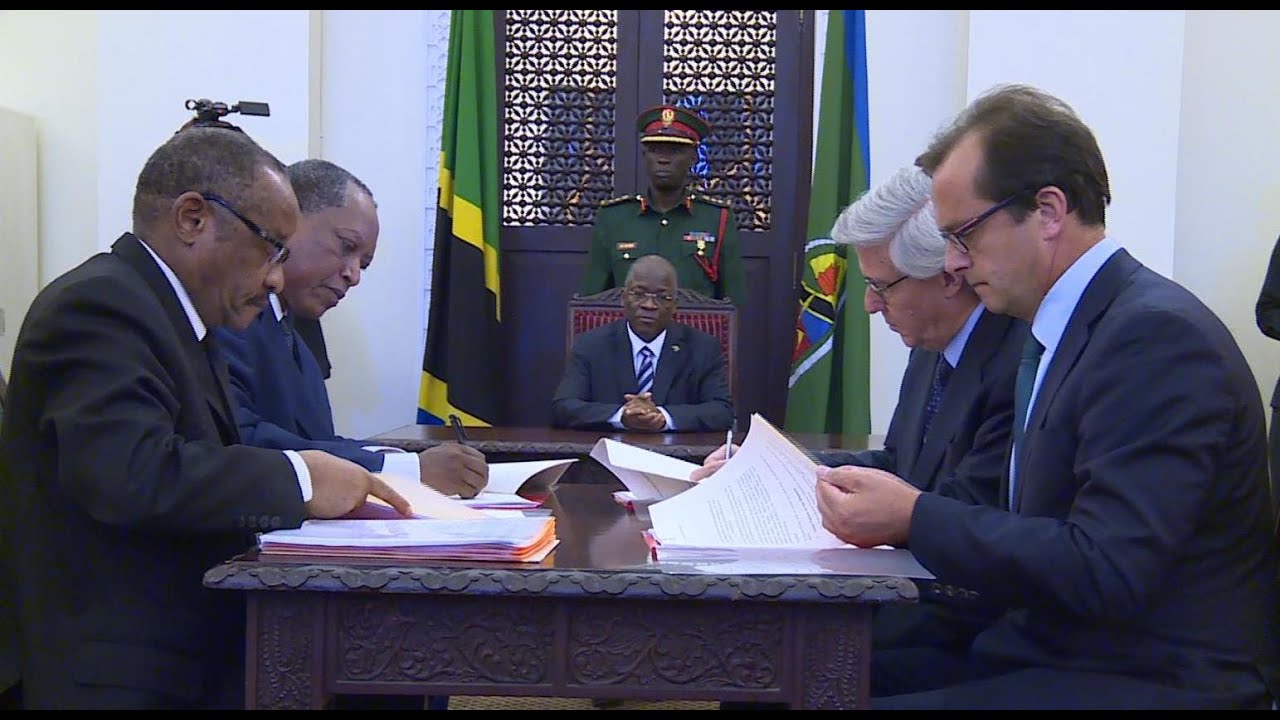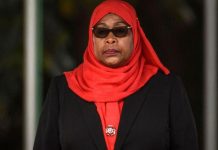THE Tanzania-Barrick landmark mining deal will go down in history as the longest drawn-out negotiation in the mining sector and certainly a battle worth fighting.
A new precedent that will probably govern negotiations and contracts in the extractive industry across Africa was set in Dar es Salaam Last Friday after the Tanzanian government inked historic deal with Canada’s Barrick Gold Corporation.
The deal opened a new chapter in the East African nation’s mining sector by granting the government ownership of 16 per cent of undiluted shares in the newly incorporated Twiga Minerals Corporation.
Tanzania has also taken control of 16 per cent stake in each of the three Barrick mines managed by the Twiga Minerals Corporation— Bulyanhulu, North Mara and Buzwagi and sharing of future economic benefits from the mines on a 50/50 basis.
The agreements between the government and the Canadian company marked the end of the tax disputes negotiations between the two parties and set a precedent for issuance of future mining licences. President John Magufuli in his own words described it as a clash between a cow and a rabbit.
Hardly African nations win their battle for mining rights against these multinational companies. Dr Magufuli asked both parties –Tanzanian government and Barrick to honour the agreement.
“Since we have agreed on principles and signed these agreements you should abide by the terms and conditions … and those who will be representing Tanzania should not allow to be bribed because you are representing the country’s interests,” he stressed.
The reform-minded leader who initiated mining reforms soon after taking over as fifth-phase president was grateful to Almighty God for the milestone achievement and showered praises on the country’s negotiation team led by Foreign Affairs Minister Prof Palamagamba Kabudi for a job well done.
Prof Kabudi narrated the hardships the country’s negotiators went through, revealing that at one point he mulled over tendering resignation after being fed up by the antics displayed by the previous Barrick delegation.
He had to consult religious leaders at times –seeking help. He believes the enormous courage and patriotism demonstrated by his compatriots in the team inspired him to keep on fighting.
They persevered and finally got the deal done. He revealed that some of his colleagues wept when the agreement was finally reached.
The Tanzania’s negotiation team included BoT governor Prof Florens Luoga and Permanent Secretary (PS) in the Ministry of Finance and Planning, Dotto James, Prof Mruma Abdulkarim, Casmir Kiuki, Prof Nehemiah Osoro, Dr Y amungu Kayandabira, Geoffrey Mwambe, Adolf Nduguru, Andrew Massawe, Bernard Asubisye.
They were up against the extractive industry’s heavyweights in the likes of Prof John Lawson Thornton– an American businessperson who has been at the helm of 11 different companies and holds the position of Chairman for Z enti, Inc. and Non-Independent Executive Chairman at Barrick Gold Corp.
Another Barrick negotiator was Richard W illiams, who served as Barrick’s chief of staff and later chief operating officer. He held various high-profile roles at the company from Nevada to Tanzania, before leaving the company as it prepared to complete its merger with Randgold Resources Ltd.
A former commander in Britain’s Special Air Service, he was assigned in February to work full-time on securing a deal between the Tanzanian government and Barrick’s majority- owned subsidiary Acacia Mining Plc. Barrick President and Chief Executive Mark Bristow said there have been lots of criticisms and gossip about the negotiation but the signing of the agreements marked a historical day for Africa.
He said they have a lot of experience to learn from because there were many mistakes committed in the past. “If we don’t learn from the past and cannot do better than what we experienced in the past ten years we don’t deserve to be here,” the Barrick CEO said.
Commenting on this, Prof U lingeta Mbamba who is the Dean of the School of Business at the U niversity of Dar es Salaam (U DBS) noted that the move has set a precedent for other mineral-rich African countries.
Apparently reflecting on President Magufuli’s boldness in protecting the country’s natural resources, Prof Mbamba said good leadership and strong political will is needed to make things happen for the wider interest of the country.
“In everything, there must be a starting point and the question will be who can initiate it, for this case, Tanzania has started and all other African countries will come after, I believe, we are now the role model,” he told the ‘Daily News’.
The senior lecturer commended the achievement –saying it has come at the right time, and definitely the country’s earnings from the sector will hit a record high. “This is a milestone achievement for our country.
W e must be proud of it, I’m sure more good things are coming, so far great job has been done, big up to the Tanzania’s negotiation team,” he said. Another economist, who is a former senior lecturer at the U niversity of Dar es Salaam Prof Haji Semboja, asserted that reforms have smoothened investment in mining sector in a manner that all parties will benefit.
He was of the view that, the just wrapped up negotiations were so accommodating –hinting that in the past the situation was worse as their nation lacked a clear system to monitor the trade but now everything is in place.
“Y ou may have brilliant ideas but blind of where to start, this is what most of African countries are lacking, for Tanzania we have a President who walks the talk, he can initiate an idea and make sure it prospers,” said Prof Semboja.
Only a few people understood what direction the country was going when the government took on mining companies, but the negotiation teams did well under the guidance from the Head of State as a result the country is now going to get something from the extractive industry, said Prof Semboja.
He maintained that, reforms were crucial for the mining sector, which is vital in the country’s economic growth.
“I know that even South Africa have been looking for a mechanism for them to start benefiting from the sector and get rid of the crisis that have been facing them for years, they can now copy from what we have done,” he suggested.
Prof Kabudi rightly expressed gratitude to the Barrick Corp. management for making it happen. He particularly singled out the Executive Chairman of Barrick Gold Corporation Prof John Thornton for praise, saying his role in the deal was admirable.
He also reserved special praise for Mr W illiams, noting the former British commander supported Tanzania’s cause during the protracted negotiations and asked the President to extend an invitation to the Briton to visit the country in the future in recognition of his great support.
It is also believed the Barrick’s International Advisory Board played a role in settling the matter.
The board, which was established to provide advice to the company’s board of directors and management on geopolitical and other strategic issues affecting comprises of former Prime Ministers of Canada and Spain, Mr Brian Mulroney and José María Aznar respectively.
Others are John Baird, former Canadian Minister of Foreign Affairs and Gustavo Cisneros from Dominican Republic, Chairman of Cisneros Group of Companies.







